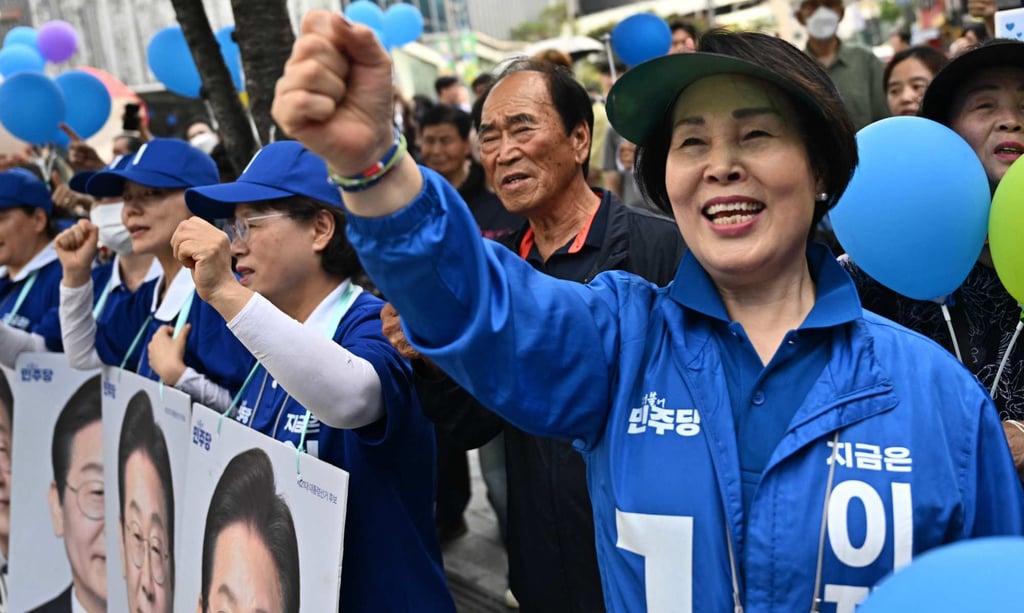Articles in this Cluster
02-06-2025
South Korea’s snap presidential election follows a failed martial law attempt by President Yoon Suk Yeol, which led to his impeachment and deepened political polarization and violence. The race has become a de facto referendum on that crisis. Opposition leader Lee Jae-myung, now leading by about 10 points, campaigns as the defender of democracy, promising constitutional changes to prevent future abuses. He has moderated his platform—courting business, emphasizing the US alliance, and adopting centrist imagery—to broaden appeal despite past scandals. The ruling conservative candidate, Kim Moon-soo, damaged by his defense of Yoon and chosen by a divided party, struggles to gain traction. Voters hope the election will restore stability and trust in democracy after months of turmoil.
Entities: South Korea, Yoon Suk Yeol, Lee Jae-myung, Kim Moon-soo, martial law • Tone: analytical • Sentiment: negative • Intent: inform
02-06-2025
South Korea’s opposition leader Lee Jae-myung won a snap presidential election with 49.42% of the vote, defeating conservative Kim Moon Soo (41.15%). He will be sworn in immediately, replacing acting president Han Duck-soo after former President Yoon Suk Yeol was impeached over a failed martial law attempt. Markets rallied on the result, with the Kospi up over 2% and the won strengthening. Lee is expected to pursue a more left-leaning agenda, prioritize a swift cabinet formation, push expansionary fiscal measures, and move cautiously on U.S. tariff negotiations, potentially seeking an extension beyond the July deadline. U.S.-ROK alliance issues, including troop levels and host-nation support, loom as key challenges. Goldman Sachs expects governance reforms, support for strategic industries, and further monetary easing by the Bank of Korea, with the won likely to appreciate as policy uncertainty declines.
Entities: Lee Jae-myung, Kim Moon Soo, Yoon Suk Yeol, Han Duck-soo, Kospi • Tone: analytical • Sentiment: positive • Intent: inform
02-06-2025
South Korea heads into a pivotal June 3 presidential election shaped by security fears over China and North Korea and strains in U.S. ties amid Trump-era tariffs. Frontrunner Lee Jae-myung of the Democratic Party pledges a “pragmatic” foreign policy: strengthening the U.S.-ROK alliance and trilateral cooperation with Japan while easing hawkish stances on China and managing ties with Beijing and Moscow. His conservative rival, Kim Moon-soo of the People Power Party, warns against softening toward China and questions Lee’s reliability, citing allegations of illicit funds to North Korea (which Lee denies) and concerns he’d tilt toward Beijing. Critics argue U.S. tariffs and possible troop changes have eroded trust; supporters of a tougher line emphasize China’s regional assertiveness. Voters face a choice between firm alignment with Washington and a more balanced approach aiming to reduce tensions with China and North Korea.
Entities: South Korea, Lee Jae-myung, Kim Moon-soo, Democratic Party, People Power Party • Tone: analytical • Sentiment: neutral • Intent: inform
02-06-2025
South Korea’s snap presidential election will likely usher in Democrat Lee Jae-myung, who faces a difficult balance between security ties with the US and economic dependence on China. Analysts say the next leader inherits severe economic and security challenges: Washington is pressuring Seoul on defense cost-sharing and broader alignment, while China remains crucial for trade. Lee has signaled support for the US alliance, acknowledging the role of 28,500 US troops in containing China, but he is expected to soften the conservatives’ hard line on Beijing and avoid entanglement in a Taiwan conflict— pointedly sidestepping questions about aiding Taiwan against a mainland attack. The outcome could reshape South Korea’s defense posture and China policy.
Entities: South Korea, Lee Jae-myung, United States, China, US–South Korea alliance • Tone: analytical • Sentiment: neutral • Intent: analyze
